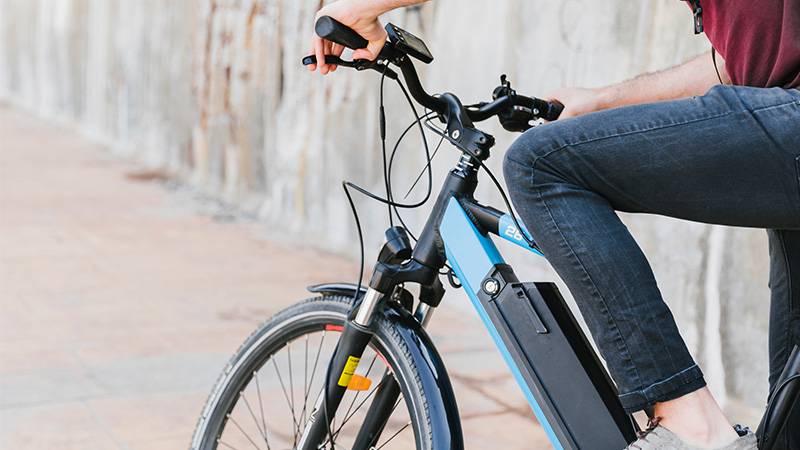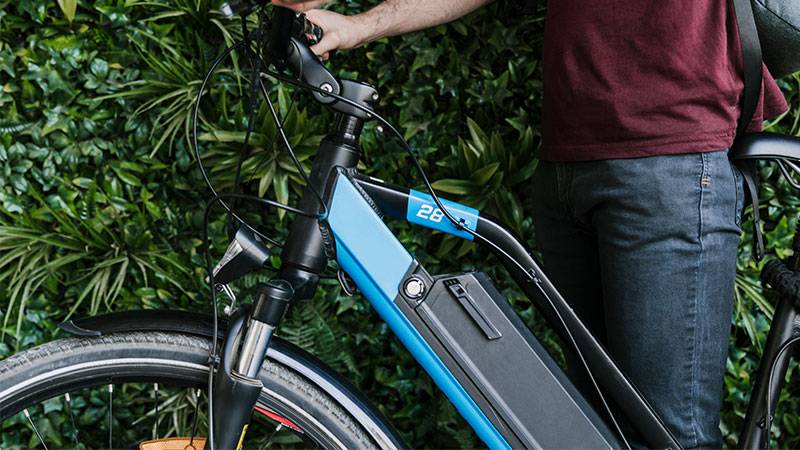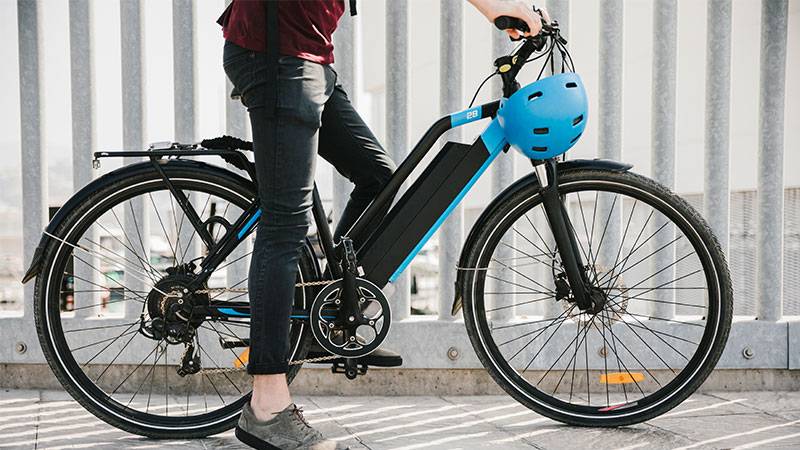Welcome to the electric revolution!
As cityscapes buzz with the hum of electric bikes, these innovative machines are not just a fleeting trend but a new staple in urban mobility.
With their popularity surging, electric bikes represent more than just a way to get around; they symbolize a smarter, greener, and more efficient lifestyle.
In this article, we’re diving into the myriad benefits of electric bikes, shedding light on how they’re transforming our commutes, our health, and our planet.
So, gear up and let’s embark on this electrifying journey together!
1. Eco-Friendly Transportation
Embracing an electric bike isn’t just a personal choice; it’s a commitment to eco-friendly transportation. These sleek machines are pivotal in the global shift towards sustainable transportation, significantly reducing the environmental impact of our travel habits.
Studies reveal a striking contrast in the carbon footprint between electric bikes and traditional vehicles. While an average car emits about 271 g of CO2 per kilometer, electric bikes drastically cut this number down, contributing a mere fraction of that emission. This stark difference highlights not just the potential of electric bikes in urban mobility solutions but also their crucial role in combating climate change.
By choosing electric bikes, riders are not just navigating city streets; they’re steering towards a more sustainable and environmentally conscious future, one pedal at a time.

2. Cost-Effective Compared to Cars
Electric bikes offer a significantly more cost-effective mode of transportation compared to cars. Initially, the purchase price of an electric bike is usually lower than that of a car. But the real savings are noticed in the long term.
Running costs for electric bikes are minimal. They require less energy to operate and don’t need expensive fuel. Maintenance is also more straightforward and cheaper, given their simpler mechanics and fewer parts.
In contrast, cars come with continuous expenses: high fuel costs, regular maintenance, insurance fees, and in urban areas, parking charges. All these costs add up over time, making electric bikes a more economical choice for both short and long-term budgeting.
3. Reduces Traffic Congestion
Electric bikes have proven to be an effective solution to the persistent problem of urban traffic congestion. They occupy less space than cars, allowing more people to travel on the same roads without adding to the clutter.
Data from urban studies show that cities with higher electric bike usage experience noticeably less traffic congestion. For instance, in cities like Amsterdam and Copenhagen, known for their cycling culture, the widespread use of electric bikes has contributed to smoother traffic flow and less congested streets.
These cities serve as success stories, demonstrating that integrating electric bikes into the transportation infrastructure can significantly alleviate traffic congestion. They provide a clear roadmap for other cities aiming to tackle traffic woes and promote sustainable urban mobility.

4. Requires Less Physical Effort Than Traditional Bikes
Electric bikes are designed for effortless riding, significantly reducing physical strain. The key is the pedal-assist system, which boosts the rider’s pedaling effort with an electric motor. This innovation allows for easy travel over various terrains without excessive exertion.
Users often praise electric bikes for their ease of use. Many commuters report enjoying sweat-free rides to work, even when covering longer distances. Similarly, older individuals and those with physical limitations find electric bikes a game-changer, allowing them to cycle comfortably where traditional bikes posed challenges.
The consensus is clear: electric bikes open up cycling to a wider audience, offering a riding experience that’s both accessible and enjoyable, with minimal physical effort required.
5. Increases Range and Speed
Electric bikes are engineered to enhance travel range and speed, offering a clear advantage over traditional bikes. With the integrated electric motor, riders can achieve greater distances without additional physical strain, effectively extending their travel radius.
Compared to traditional bikes, electric bikes come out ahead in terms of speed and endurance. The assisted pedaling allows riders to maintain higher speeds over longer periods, making commutes faster and less tiring. This is especially beneficial for longer commutes or when navigating hilly terrain, where electric bikes provide that extra push needed to maintain a steady pace without exhausting the rider.
The technical advancements in electric bike design are redefining the possibilities of cycling, making it a more viable and appealing option for a wider range of travel needs.
6. Offers a Sweat-Free Commute
Electric bikes are a game-changer for those seeking a comfortable, sweat-free commute. The electric assist feature means you can arrive at your destination feeling fresh, even in warm climates or after a long ride. This is particularly appealing for office-goers who want to avoid arriving at work in need of a shower.
The ability to adjust the level of assistance based on your needs or the outside temperature ensures a comfortable ride in various conditions. Whether you’re facing a steep hill or simply want to avoid sweating on a hot day, the electric bike adapts to your preferences, providing just the right amount of support to make your commute pleasant and stress-free. This sweat-free advantage is transforming the commute experience, making electric bikes an attractive option for a wide range of riders.

7. Improves Mental Health
Electric bikes significantly enhance mental health by combining the joys of outdoor activity with a stress-free riding experience. Being outdoors and engaging with nature is linked to reduced stress levels and improved mood, contributing to overall mental well-being.
The effortless ride of an electric bike allows you to enjoy these benefits without the strain associated with traditional cycling. This ease promotes a relaxed, enjoyable experience, reducing anxiety and stress.
Additionally, the physical activity, even if assisted, helps release endorphins, known as ‘feel-good’ hormones. Riders often describe a sense of freedom and relaxation during and after their rides, indicating a positive impact on mental health. Electric bikes are more than just a means of transportation; they offer a joyful escape, fostering mental clarity and emotional balance.
8. Provides Low-Impact Exercise
Electric biking stands out as a form of low-impact exercise, making it an inclusive fitness option for a broad audience. Its gentle nature is especially beneficial for those who are new to exercise, recovering from injuries, or facing joint issues.
The adjustable assistance levels of electric bikes allow riders to tailor their workout intensity. This means individuals can engage in physical activity without the risk of overexertion, common in more high-impact sports.
As a result, electric biking opens up the world of fitness to more people, offering a way to improve cardiovascular health, increase stamina, and build strength in a safe, controlled manner. It’s a welcoming entry point into a healthier lifestyle, ensuring everyone, regardless of their fitness level, can enjoy the benefits of regular exercise.
9. Convenient for Hilly or Difficult Terrain
Electric bikes excel in making hilly or difficult terrains more accessible. The motor-assisted pedaling provides the extra power needed to tackle steep inclines or rough paths, transforming challenging rides into comfortable journeys.
This feature is particularly beneficial for those living in areas with varied landscapes, where traditional cycling can be demanding. Electric bikes level the playing field, ensuring that hills and uneven terrains are no longer obstacles but part of an enjoyable ride.
The accessibility to diverse terrains not only broadens the scope of cycling but also encourages more people to explore their surroundings by bike. Electric bikes effectively turn daunting paths into manageable and even enjoyable routes, promoting outdoor activity and exploration in all kinds of environments.
10. Reduces Carbon Footprint
Switching to electric bikes plays a significant role in reducing one’s carbon footprint. Studies indicate that electric bikes emit far fewer greenhouse gases per kilometer compared to conventional vehicles.
On average, a car emits about 271 grams of CO2 per kilometer, while electric bikes drastically lower this figure, emitting less than 10% of that amount. This substantial reduction is a testament to the environmental efficiency of electric bikes.
By opting for an electric bike over a car, individuals can significantly diminish their personal impact on the environment. This choice not only contributes to cleaner air and reduced greenhouse gas emissions but also promotes a more sustainable and responsible mode of transportation. Adopting electric bikes is a powerful step towards minimizing our ecological footprint and fostering a healthier planet.

11. Promotes Sustainable Urban Mobility
Electric bikes are at the forefront of revolutionizing urban mobility, aligning perfectly with the goals of sustainable city planning. They offer a swift, efficient, and eco-friendly way to navigate urban landscapes, reducing reliance on fossil-fuel-powered vehicles.
Cities that embrace electric bikes see improvements in traffic flow, air quality, and public health. The compact nature of these bikes eases congestion, and their low emissions contribute to cleaner, healthier urban environments.
Moreover, the integration of electric bikes into cityscapes encourages the development of bike-friendly infrastructure, further promoting sustainable urban living. This shift not only enhances the quality of city life but also sets a precedent for future urban planning, prioritizing sustainability and well-being. Electric bikes are not just a mode of transportation; they’re a driving force in the journey towards sustainable urban mobility.
12. Low Maintenance Costs
Electric bikes are known for their low maintenance requirements and costs, especially when compared to cars and even traditional bikes. The electric motor and battery system are relatively low-maintenance, requiring only occasional checks and potential battery replacements after extensive use.
In contrast, cars demand regular, costly maintenance such as oil changes, brake replacements, and engine servicing. Traditional bikes, while less demanding than cars, still require frequent checks and adjustments to the chain, gears, and brakes.
The simplicity of electric bike components often leads to fewer mechanical issues and thus, lower repair costs. This economical upkeep makes electric bikes an attractive option for those seeking a reliable, low-cost mode of transportation. The savings on maintenance not only add to the cost-effectiveness of electric bikes but also contribute to a hassle-free riding experience.
13. Accessible to a Wider Range of People
Electric bikes stand out for their accessibility, catering to a wide demographic, including those with physical limitations. The assisted pedaling feature makes them suitable for older adults, people recovering from injuries, or those who may find traditional cycling too strenuous.
Unlike regular bikes, which require significant physical effort, especially on challenging terrains or over long distances, electric bikes level the playing field. They allow individuals who might otherwise be unable to cycle to enjoy the benefits of biking, from leisurely rides to daily commutes.
This inclusivity extends the joy and advantages of cycling to more people, promoting a healthier, more active lifestyle across diverse communities. Electric bikes are not just a transportation option; they’re a tool for empowerment, enabling more people to explore, commute, and stay active regardless of their physical capabilities.
14. Can Be Used for Both Leisure and Commuting
Electric bikes epitomize versatility, catering equally to leisure riders and daily commuters. For leisure, they provide a relaxing way to explore and enjoy the outdoors, allowing riders to cover more ground with less effort, and making scenic routes and parks more accessible and enjoyable.
For commuting, electric bikes offer a practical, swift, and eco-friendly alternative to traditional transportation methods. They allow commuters to bypass traffic, save on parking and fuel costs, and arrive at their destination without the sweat and exhaustion associated with traditional biking.
This dual functionality makes electric bikes a valuable investment for a wide range of needs, ensuring that whether you’re looking to unwind over the weekend or navigate the urban weekday rush, your electric bike is your reliable companion for every journey.
Conclusion
Electric bikes offer a blend of benefits: eco-friendly transportation, cost efficiency, reduced traffic congestion, effortless riding, and versatility for leisure and commuting. They present a sustainable, low-maintenance solution that’s accessible to a diverse demographic.
Consider making an electric bike your next mode of transportation. It’s a step towards a greener, healthier, and more enjoyable daily routine. Embrace the future of urban mobility—explore your options, find your perfect ride, and join the electric bike movement today. Your journey to a better commute and a healthier planet begins with a single pedal.



